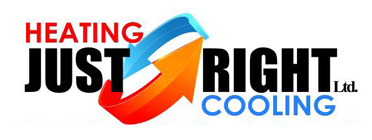
We spend a good majority of our time in our homes. In fact, the Environmental Protection Agency (EPA) has approximated being indoors comprises 90% of our schedule. However, the EPA also has determined your indoor air can be three to five times more polluted than outside your home.
That’s because our homes are firmly sealed to increase energy efficiency. While this is fantastic for your utility costs, it’s not so fantastic if you’re among the 40% of the population with respiratory allergies.
When outdoors ventilation is limited, pollutants like dust and volatile organic compounds (VOCs) could get trapped. As a result, these pollutants could worsen your allergies.
You can enhance your indoor air quality with clean air and regular dusting and vacuuming. But if you’re still having issues with symptoms during the time you’re at home, an air purifier could be able to provide assistance.
While it can’t get rid of pollutants that have gotten trapped in your couch or carpet, it can help freshen the air traveling around your home.
And air purification has also been scientifically proven to help reduce some allergic symptoms, according to the American College of Allergy, Asthma and Immunology. It might also be appropriate if you or a loved one has a lung condition, like emphysema or COPD.
There are two options, a portable air purifier or a whole-home air purifier. We’ll go over the distinctions so you can determine what’s correct for your house.
Whole-House Air Purifier vs. Portable Air Purifiers
A portable air purifier is for one room. A whole-house air purifier accompanies your heating and cooling unit to treat your full residence. Some models can clean independent when your HVAC system isn’t running.
What’s the Best Air Purifier for Allergies?
Go after a model with a High Efficiency Particulate Air (HEPA) filter. HEPA filters are placed in hospitals and offer the best filtration you can get, as they eliminate 99.97% of particles in the air.
HEPA filters are even more useful when used with an ultraviolet (UV) germicidal light. This dynamic blend can eliminate dust, dander, pollen and mold, all of which are common allergens. For the best in air purification, consider equipment that also has a carbon-based filter to reduce household vapors.
Avoid using an air purifier that makes ozone, which is the main component in smog. The EPA advises ozone may worsen respiratory problems, even when discharged at small settings.
The Allergy and Asthma Foundation of America has created a list of questions to consider when getting an air purifier.
- What can this purifier extract from the air? What doesn’t it remove?
- What’s its clean air delivery rate? (A better number means air will be cleaned more rapidly.)
- How often does the filter or UV bulb need to be changed]? Can I finish that by myself?
- How much do spare filters or bulbs cost?
How to Decrease Seasonal Allergy Symptoms
Want to receive the {top|most excellent|best] results from your new air purification unit? The Mayo Clinic recommends taking other procedures to reduce your exposure to things that can trigger seasonal allergies.
- Stay indoors and keep windows and doors shut when pollen counts are elevated.
- Have other household members trim the lawn or pull weeds, since these jobs can worsen symptoms. If you must do these jobs alone, consider wearing a pollen mask. You should also rinse off without delay and put on clean clothes once you’re finished.
- Avoid hanging laundry outside your home.
- Run air conditioning while at home or while in the car. Consider using a high efficiency air filter in your home’s heating and cooling system.
- Even out your home’s humidity saturation with a whole-house dehumidifier.
- Hardwood, tile or linoleum are the suggested flooring types for lowering indoor allergens. If your residence has carpet, add a HEPA filter on your vacuum cleaner.
Let Our Specialists Take Care of Your Indoor Air Quality Needs
Prepared to progress with installing a whole-house air purifier? Give our experts a call at 513-935-3804 or contact us online to request an appointment. We’ll help you choose the best unit for your family and budget.


